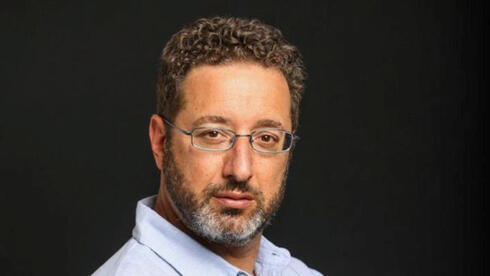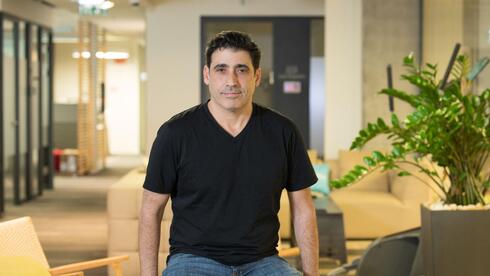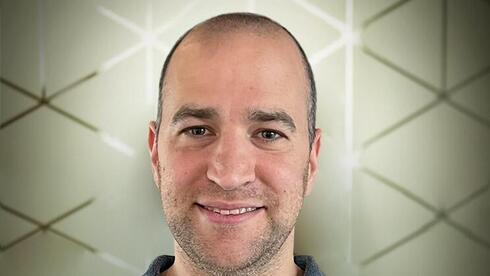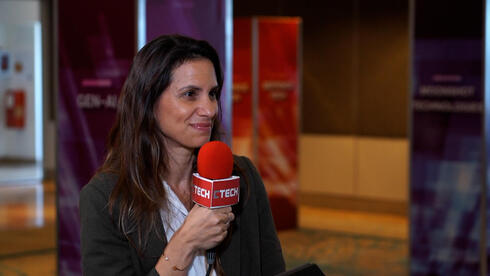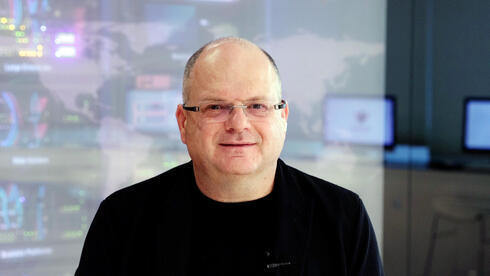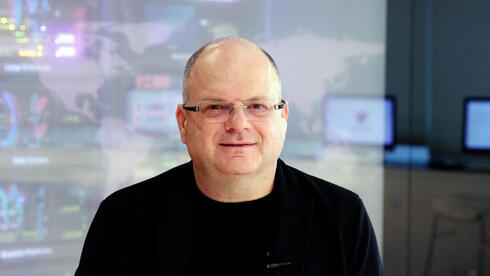
Gil Shwed: "This is the perfect time to step down. We have peaked on all levels"
Gil Shwed: "This is the perfect time to step down. We have peaked on all levels"
After 30 years at the helm of Check Point, Shwed announced on Tuesday that he will be leaving the role of CEO. “I was 24-years-old when we started the company, and now, especially after the last quarter, the timing is perfect,” noted Shwed
Wearing his trademark eternal black t-shirt and a yellow ribbon pin for the hostages being held in Gaza on his jacket lapel, Gil Shwed looked his usual self when he kicked off the presentation summarizing Check Point's annual results for 2023. The first slide featured his dramatic retirement announcement—a juxtaposition of him as a baby on one side and as a seasoned CEO on the other. In his typical fashion, he swiftly transitioned to discussing Check Point's products and cyber threats, seemingly unfazed by the gravity of his life-changing decision. However, most questions from the assembled media delved into the personal aspect.
"I embarked on the journey called Check Point exactly 31 years ago this week. Those years were incredible; we achieved every possible milestone, pioneered a new industry, and participated in shaping the internet, which has become central to our lives. In the early years, we had to convince people of its reality and potential,” said Shwed. “We delivered consistent results that were unparalleled, proving that Israeli companies can not only trade at a value of billions but also sell in billions. Of course, we could have grown more aggressively in marketing and sales. Hopefully, in the next decade, we will demonstrate our ability to achieve much higher growth rates and not just be the technological gold standard. Over the years, we acquired 20 companies after being told we weren't buying enough. The invention of the firewall revolutionized the industry, and even after 30 years, our industry remains vibrant, despite many others fading."
The 55-year-old Shwed co-founded the cybersecurity giant in 1993 alongside Shlomo Kramer and Marius Nacht, who left the company long ago. Despite being the youngest founder, Shwed has been at the helm of Check Point since its inception and is now the longest-tenured CEO on Nasdaq. Upon finding a replacement, Shwed will transition to the role of Executive Chairman of Check Point.
Why retire now?
"For 27 years, roughly since Check Point went public, I've been asked why I’m remaining as the CEO of the company. I was 24-years-old when we started the company, and now, especially after the last quarter, the timing is perfect because we are on a positive trend, the results are excellent, and I am very confident in the company's performance. We peaked on all levels, including the stock."
What are you looking for in the next CEO of Check Point?
"I'm not seeking a clone of myself. I'll continue to impart my values and support the CEO. We need someone deeply passionate about security, customer-centric, and willing to engage externally. Experience in large organizations is crucial. I turned into the face of Check Point, but I like being in the office and working on the computer so we are looking for someone who does want to represent the company to the world."
Will the next CEO be Israeli?
"We're conducting a global search, but we would like the next CEO to be in Israel and therefore the Israeli identity is important. We would of course be happy if it were someone Israeli. We'll pursue the right process, which may take six months to two years. If we had the perfect candidate within the company we would have already announced it, but we want to also look at external candidates."
How serious is the crisis in Israeli high-tech in your opinion?
"We have a great industry, Israel is a leader and will continue to lead in tech, but a bubble has formed in recent years. Many of these companies do not know how to make money and need investors' money. This money runs out, investors stop investing because there is no return on investment. If a company is not profitable, it runs out of oxygen, and that is dangerous. The more the industry is based on unprofitable companies, the higher the risk, and therefore Israel is also at higher risk. But this does not diminish my assessment of Israeli companies."
First published: 14:48, 06.02.24




